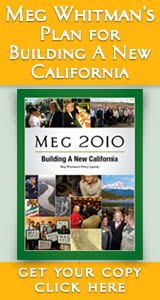This week, Tennessee Sen. Bob Corker has been warning the Obama administration on closing his state's Spring Hill GM plant.
Before getting into specifics, here's the train of thought that seems to be running thru Corker's head -- if the government has too much power, they got it via a political grab, and political grabs can only be sustained by political moves, which always center around the executor's best interest (in this case Obama's).
Under that line of thought, closing Spring Hill is as blue a decision as can be.
For example, in his press release this week, Corker makes the broader point that government power's has gotten out of hand. Then, more specifically, he recounts his fight against the bailout last year, Obama's power plays this year, and concludes that the specter of closing a plant exists purely for political reasons.
Why does it have to be a political reason?
Corker:If the administration uses factors like efficiency, flexibility and the quality of the workers, our modern, adaptable GM plant in Spring Hill should do very well. Spring Hill is the kind of facility that represents what made the American car industry a world leader in technological innovation. Hopefully it will play a key role in GM's resurgence.
(ea) So what about efficiency and flexibility? (we'll go under the assumption that the 2,911 hourly workers in Tennessee and their colleagues up north don't vary much in work ethic).
As you might guess, there seems to be a geographical divide on who's more efficient and flexible.
We'll start with flexibility.
Professor James Rubenstein, a specialist in auto plant site selection for Miami University, says Spring Hill loses:"Does Spring Hill have something to worry about? Yeah. If you look at a map, the farther away from Michigan, the more vulnerable" [a plant is].
But is flexibility just a geographical thing?
What if Spring Hill does something unique?
Well, they once did, and if you make a stretch, you can say they might.
Auto Observer:The Spring Hill plant became vulnerable awhile ago when GM spread the assembly of Saturn, once made exclusively in Tennessee, throughout the rest of GM's manufacturing operations. The plant got a reprieve when GM selected it to build the Traverse.
But does the Traverse alone make Spring Hill worth saving?
The Detroit Free Press:.... a newer plant in Lansing is already producing three other vehicles on that same platform. And Lansing is much closer to suppliers than Tennessee.
Add to that the fact that larger trucks, SUVs and CUVs like the Traverse could take a hit if Obama's auto team demands a more aggressive move to fuel-efficient sedans.
Asked if Spring Hill is vulnerable, auto analyst Erich Merkle of Grand Rapids said, "There's no question."
(ea) Remember the bolded name.
The Detroit Free Press released a piece today titled "Look who wants to protect a GM plant" in which they glittered the above in glee.
But completely missing from either pieces are more words from the same Erich Merkle:"Spring Hill could be on the bubble because it's in a red state, and Michigan is a blue state. The governor of Michigan is a Democrat, too, and she needs all the plants she can get."
Not quite as slam dunk as the Free Press makes Merkle out to sound.
David Cole, chairman of the Center for Automotive Research in Ann Arbor, Michigan, says that, in the end, it's difficult to determine what should be saved and what shouldn't, and ultimately, there's probably politics mixed in there, as there is in everything."Spring Hill is still a relatively new plant and has been refurbished to make it much more flexible than it has ever been. It's a very good plant, and when the economy recovers, those GM crossover vehicles are going to be very strong.
It would be a shame for GM not to be able to meet consumer demand because they closed one of the plants. If they walk away from that plant, that would be a very strategic error, but in politics anything is possible."
Bu there's always this: whoever loses practically may be able to gain something politically.
Obama could keep Spring Hill and talk bipartisan while angering some in Midwestern battlegrounds.
On the other hand, Corker could lose Spring Hill, but gain another national cause by blaming politics. And that's not all: he could also pivot from national to state concerns by taking a public stand to save the local plant.
Breaking news on rising GOP stars and the 2012 Republican Presidential nomination
About GOP12
Breaking news and commentary on rising GOP stars and the 2012 Republican Presidential nomination.
Follow GOP12 on Twitter!
Email stuff here.
Christian Heinze writes GOP12.
Follow GOP12 on Twitter!
Email stuff here.
Christian Heinze writes GOP12.
The Prospective Candidates
- Bob Corker
- Bobby Jindal
- Charlie Crist
- Dick Cheney
- Dirk Kempthorne
- Eric Cantor
- Gary Johnson
- Haley Barbour
- Jim DeMint
- John Thune
- Mike Huckabee
- Mike Pence
- Mitch Daniels
- Mitt Romney
- Newt Gingrich
- Rick Perry
- Ron Paul
- Sarah Palin
- Sean Penn
- Tim Pawlenty
- Casino Not On Gamstop
- Casinos Not On Gamstop
- Non Gamstop Casinos UK
- Best Non Gamstop Casinos
- List Of Non Gamstop Casinos UK
- Betting Sites
Conservative
- Ace of Spades HQ
- American Thinker
- Andrew Sullivan
- Atlas Shrugs
- Big Hollywood
- California Conservative
- Common Sense Political Thought
- Conservatism Today
- Conservative political report
- David Brody
- Dick Morris
- Discover the Networks
- Doubleplusundead
- Erick Erickson
- Focus on the Family's Citizen Link
- Free Republic
- Gateway Pundit
- Gay Patriot
- Hip Hop Republican
- Hit and Run
- Hot Air
- Instadpundit
- Josh Painter
- Libertarian Republican
- Little Green Footballs
- Matt Lewis
- Michelle Malkin
- Moon Battery
- Net Right Nation
- News Busters
- Powerline
- Professor Bainbridge
- Q and O Online Magazine
- Red State
- Right Wing News
- Right Wing Nuthouse
- Right Wing Video
- The Corner
- The New Majority
- The Next Right
- The Weekly Standard Blog
- Vodkapundit
- Wizbang
Liberal
- America Blog
- Andrew Sullivan
- Balloon Juice
- California Progress Report
- Crooks and Liars
- Daily Kos
- Democracy Arsenal
- Eschaton
- Ezra Klein
- Feministing
- Firedoglake
- Gerald Seib
- Glenn Greenwald
- Hilzoy
- Hullabaloo
- James Fallows
- Kevin Drum
- Media Matters
- Pandagon
- Salon War Room
- Street Prophets
- Talk Left
- Talking Points Memo
- Tapped
- The Notion
- The Washington Monthly
- Think Progress
- Wonkette
- Yglesias
GOP stars and prospective 2012 contenders
- 2012 Cheat Sheet (2)
- Bob Corker news (91)
- Bob Corker video (6)
- Bob McDonnell news (90)
- Bob McDonnell video (10)
- Bobby Jindal news (250)
- Bobby Jindal video (11)
- Charlie Crist news (436)
- Charlie Crist video (10)
- Crist vs Rubio (287)
- Dan Quayle news (2)
- Dick Cheney news (8)
- Dick Cheney video (1)
- Dirk Kempthorne news (14)
- Eats (292)
- Electoral Landscape (77)
- Eric Cantor news (179)
- Eric Cantor Video (25)
- Fiorina vs DeVore vs Campbell (47)
- Flashback Friday (2)
- Gary Johnson news (34)
- Gary Johnson video (4)
- General Petraeus (10)
- Geoge Pataki vs Mitt Romney (1)
- George Pataki news (19)
- George Pataki video (3)
- Haley Barbour news (79)
- Hutchison v Perry (273)
- Jeb Bush news (63)
- Jeb Bush video (3)
- Jenny Sanford news (20)
- Jim DeMint news (195)
- Jim DeMint video (16)
- John Ensign news (70)
- John Ensign video (3)
- John Thune news (224)
- John Thune video (18)
- Jon Huntsman news (150)
- Jon Huntsman video (3)
- Jon Kyl news (40)
- Kay Bailey Hutchison news (40)
- Kay Bailey Hutchison video (3)
- Lists (217)
- Liz Cheney news (1)
- Lou Dobbs news (3)
- Luis Fortuno news (1)
- Marco Rubio news (11)
- Mark Sanford news (435)
- Mark Sanford video (22)
- Michele Bachmann news (48)
- Michele Bachmann video (5)
- Mike Bloomberg news (1)
- Mike Huckabee news (493)
- Mike Huckabee video (77)
- Mike Huckabee vs Mitt Romney (15)
- Mike Huckabee vs Sarah Palin (5)
- Mike Pence news (36)
- Mike Pence video (6)
- Mitch Daniels news (162)
- Mitch Daniels video (13)
- Mitt Romney news (573)
- Mitt Romney video (33)
- Mitt Romney vs Jon Huntsman (5)
- Mitt Romney vs Mike Huckabee (15)
- Mitt Romney vs Sarah Palin (32)
- Newt Gingrich news (341)
- Newt Gingrich Ominpresent Won't Go Away Energizer Bunny Tale as Old as Time Another Saw Movie Watch (14)
- Newt Gingrich video (44)
- Newt v Palin (3)
- Nikki Haley news (17)
- Nikki Haley video (3)
- Orphan posts (519)
- Paul Ryan news (3)
- Pawlenty v Palin (1)
- Polls (120)
- Rick Perry news (158)
- Rick Perry video (11)
- Rick Perry vs Bill White (6)
- Rick Santorum news (46)
- Rick Santorum video (4)
- Romney v Pawlenty (15)
- Ron Paul news (32)
- Ron Paul video (12)
- Rudy Giuliani news (110)
- Rudy Giuliani video (4)
- Rush Limbaugh news (30)
- Sarah Palin brings energy to the party (8)
- Sarah Palin news (1606)
- Sarah Palin nightcap (24)
- Sarah Palin video (46)
- Sarah Palin vs Mike Huckabee (5)
- Sarah Palin vs Mitt Romney (32)
- Scott Brown news (28)
- Scott Brown video (2)
- Senator Votes (31)
- Tim Pawlenty news (474)
- Tim Pawlenty video (42)
- Tom Ridge news (3)
- Whitman vs Poizner (213)
News and Commentary
- 538
- Atlantic
- Ben Smith
- Campaign Diaries
- CBS Political Hot Sheet
- Christian Science Monitor
- Christianity Today
- CNN's Political Ticker
- Conservative News
- Daily Beast
- Drudge Report
- Economist
- Election Advantage
- Gallup
- Glenn Thrush
- Huffington Post
- Los Angeles Times
- McClatchy Washington Bureau
- Mike Allen's Playbook
- Nation
- National Journal Hotline on Call
- National Review
- New York Times
- New Yorker
- Newsmax
- Newsweek
- Pajamas Media
- Pet Shop Boys Official Site
- Political Punch
- Political Wire
- Politico
- Politics Daily
- Pollster
- Post Politics
- Rasmussen Reports
- Roll Call
- Senatus
- Slate
- TechPresident
- The Buzz Florida Politics
- The Caucus
- The Fix
- The Hill
- The Hill Blog Briefing Room
- The Iowa Republican
- The Scorecard
- The Swamp
- Time
- Town Hall
- Wall Street Journal Opinion
- Washington Post
- Washington Times
- Washington Whispers
- Weekly Standard
- Women on the Web
- World Magazine
- World Net Daily

